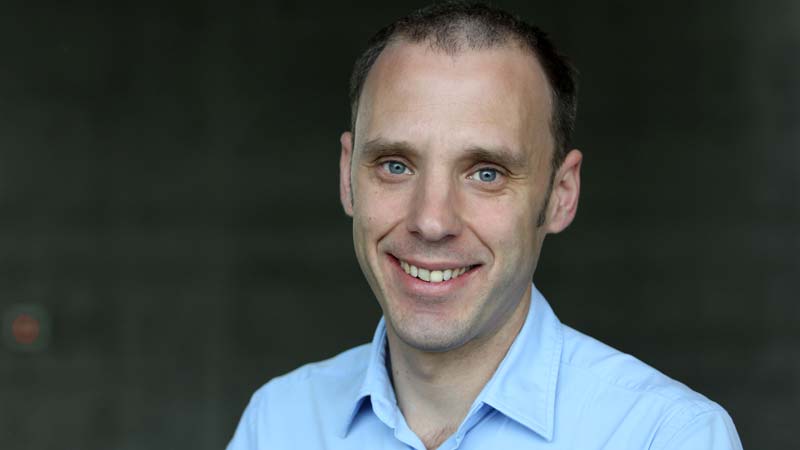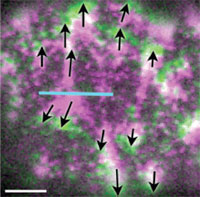Stephan Grill Group
Motor Systems

Our group works in cellular biophysics. We are interested in how molecular machines, the workhorses of the cell, function and interact to form the dynamical processes that make up living organisms. The whole is greater than the sum of the parts – in this spirit we pursue an understanding of how molecular mechanisms give rise to specific behaviors that emerge at length and time scales relevant for processes at the cell biological level, using a combined experimental and theoretical approach. Of special interest are large-scale actomyosin cytoskeletal dynamics and its relation to molecular mechanisms, and transcriptional pausing and its relation to molecular events that occur in the machinery that is involved. Our group is jointly appointed to the Max Planck Institute for the Physics of Complex Systems and the Max Planck Institute of Molecular Cell Biology and Genetics.
Cytoskeletal Systems
The main focus of our lab addresses the actomyosin cytoskeleton, where we investigate the physical basis of polarizing cortical flow in the early stages of life of the nematode Caenorhabditis elegans. Flow results from the ability of the actomyosin cortex to ‘contract’, a feature that emerges as a consequence of many molecules interacting; individual proteins cannot do this. We use imaging techniques to measure biophysical parameters such as flow velocity and alignment, and use UV laser ablation to measure cortical tension. We describe the mechanical basis of these cell biological events in terms of novel hydrodynamic descriptions of active materials. We use RNAi to perturb the function of different genes to characterize how they contribute to the mechanical behavior at cellular length and time scales. A particular focus lies in developing approaches to understand the interplay between regulatory biochemistry and cytoskeletal mechanics that is central to the development of this nematode.
Transcriptional Systems
Here we study the molecular events that are at the heart of transcription, and how they give rise to more general types of behaviors such as transcriptional pausing and proofreading. We use single molecule techniques to follow the movement of individual RNA polymerase molecules, and make use of theoretical approaches to understand how distinct kinetic mechanisms relate their biophysical modes of operation to specific cellular roles and functions.
